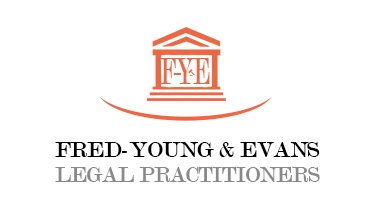Commercial Project 1
Upon obtaining a multi-million dollars judgment against a West African Consortium before a High Court in Ghana for breach of contract, a Ghanaian company could not enforce the judgment against the West African Consortium in Ghana because it had sold its businesses and assets to a Nigerian company. This made the Ghanaian company to commence an action and obtain judgment before the High Court of Lagos against the Nigerian company who took over the business and assets of the West African Consortium and the Asset Management Corporation of Nigeria (“AMCON”) who eventually took over the assets of the Nigerian Company as result of its non-performing loans to a Nigerian commercial bank.
The Ghanaian Company instructed us to register and recover the judgment sum against the Defendants at the Federal High Court, Abuja Division. We commenced garnishee proceedings to register the judgment and attached the judgment sum and the Court granted a garnishee order nisi against funds belonging to the Defendants with the Central Bank of Nigeria (“CBN”).
However, the Court could not grant a garnishee order absolute because the Court of Appeal found that the Defendants were not privies of the West African Consortium. Whilst we are still considering other legal options available to the Ghanaian company to recover the judgment sum, we have commenced negotiations with the office of the Attorney-General of the Federation for an amicable settlement of the matter.
Commercial Project 2
The Owner of a software application which offers multiple entertainment and educational products to end users approached Go Daddy.com LLC, a domain registrar who provides domain names to host websites and the Owner’s preferred name was reserved for him. The Owner promoted the website from 2014 and in 2021; he applied to Google LLC and the application was successfully listed on Google Play store.
Whilst the Owner of the application was about to launch the website in 2022 to attract users and generate funds, Google LLC commence arbitration against the Owner of the application on the grounds that the application infringes its YouTube trademark. After hearing, the arbitration tribunal held that the application infringes the YouTube trademark and directed Go Daddy.com LLC to bring down the application’s website without any compensation to the Owner of the application for many years of promoting the application without any complaints from either Go Daddy.com LLC or Google LLC.
The Owner of the application instructed us and we commenced an action against both Go Daddy.com LLC and Google LLC at the Federal High Court, Abuja Division for damages for the Owner’s promotional and marketing works on the application’s website and loss of anticipated profits associated with the brand equity and goodwill of the website.
This is because even if the Client’s website is in any way similar to the YouTube trademark, the fact that both Go Daddy.com LLC and Google LLC stood by to watch the Owner promote the website for 8 whole years without any compliant from them, has estopped them from claiming infringement of the YouTube trademark or denying the Owner use of the website or proceeds arising therefrom.
Commercial Project 3
A Client’s son of 11 years old suddenly developed severe pain in his stomach and genitals and the Client took his son to a private Hospital. After conducting the relevant scans and medical examinations, the Hospital diagnosed that his son was suffering from epididymo-orchitis, a urine infection which is also sexual transmitted. The Client’s son was admitted and treated for the disease for several days before he was discharged.
Few days later the pain intensified and the Client’s son had to be admitted again in the same Hospital and treated for malaria, sepsis and peptic ulcer disease before he was again discharged. Some days later, the Client’s son complained of excruciating pains in his genitals and his scrotum was swollen.
The Client was advised to take his son to another Hospital. The Client took his son to another Hospital and preliminary examination showed that the Client’s son had Testicular Torsion, a twist of the cord supplying blood to the scrotum. The new Hospital immediately conducted a surgery on the Client’s son only to discover that one of his testes was damaged as a result of the undue delay of the former Hospital in making the right medical decision in the first place. The Client instructed us to commence an action for damages against the former Hospital for medical negligence. The former Hospital has met with us for an amicable resolution of the matter.
Commercial Project 4
One of our Clients jointly owned 2 construction companies with an investor. In order to better manage and position the companies, the companies instructed us to draft an appropriate legal document for a split of the Company and for the respective shareholders to own each company.
We drafted an Absorption-Type Companies Split Agreement between the shareholders in which the cash, assets and liabilities of the companies were split amongst the shareholders. We made arrangement for the employees of each Company who were not retained by the shareholder that took over the respective companies and provided for payment of tax to the relevant tax authority on the transaction.
Consequent to the split, we made provision for transfer of IPs of each of the companies. We drafted the Share Transfer Agreement for the companies, effected the changes at the Companies Registry and furnished the companies with a certified copy of the filings.
We drafted the title transfer documents for both fixed and moveable assets of the companies and took steps to register the documents at the appropriate land registry. We took care of other miscellaneous legal matters which arose from the split till the companies were able to carry out business independently and effectively.
Commercial Project 5
Our service was retained by a reputable Group to incorporate a waterpark Company in Nigeria and obtain necessary permits and certifications for the Company. We obtained the Special Control Unit Against Money Laundering Certificate from the Economic and Financial Crimes Commission (“EFCC”) and the Tax Identification Number (“TIN”) and Value Added Tax (“VAT”) Certificate from the relevant Tax Office. We obtained Expatriate Quota and Business Permit from the Ministry of Interior Affairs; the NSITF Certificate from the Nigeria Social Insurance Trust Fund and Fire Service Certificate from the Fire Service.
We also obtained the Fitness for Habitation, Food and Water Handling, Gaseous Emissions, Liquor License, Merriment & Road Closure, Operation, Radio and Television License, Sanitary Inspection, Tenement Rate, Fumigation and Solid Waste Disposal permits from the Abuja Municipal Area Council (AMAC) as well as the Tourism Operational Certificate from the Nigeria Tourism Development Corporation (NTDC).
Commercial Project 6
The provision of Section 3 (1) of the Foreign Judgment (Reciprocal Enforcement) Act, CAP F35, Laws of the Federation, 2004 which commenced on 1st February 1961 provides that if the Minister of Justice of the Federation (“the Minister”) is satisfied that any Country will accord reciprocal treatment to the judgments of superior Court in Nigeria, the Minister may by an Order extend the application of Part I of the Act to the judgments of superior Court of those countries.
Though common-wealth Countries have reciprocal treatment of judgments with Nigeria, successive Ministers have failed to promulgate an Order to extend the application of Part I of the Act to those common-wealth Countries. This prompted us to commence Suit No. FHC/ABJ/CS/755/2017; Emmanuel Ekpenyong v Attorney-General and Minister of Justice of the Federation before the Federal High Court, Abuja Division for the Court to compel the Minister to promulgate the Order. Both the Federal High Court and Court of Appeal found that the Minister has discretionary powers to determine when to promulgate the Order as such the Court cannot compel him to promulgate the Order.
By a Notice of Motion for Leave to Appeal filed in Appeal. No.CA/A/132/2020, Emmanuel Ekpenyong v Attorney-General and Minister of Justice of the Federation, we filed an application for leave of the Court of Appeal to appeal against the judgment of the Court of Appeal to the Supreme Court on the grounds that the administrative discretion granted to the Minister under Section 3 (1) of the Act is not absolute but subject to judicial review and the Court should give a purposive interpretation to the provision in other to arrive at the true intention of the legislature when it enacted the Act. This would make the Court to direct the Minister to promulgate the Order to bring Part I of the Act into operation and usher in a modern legal regime for registration of foreign judgments in Nigeria.

